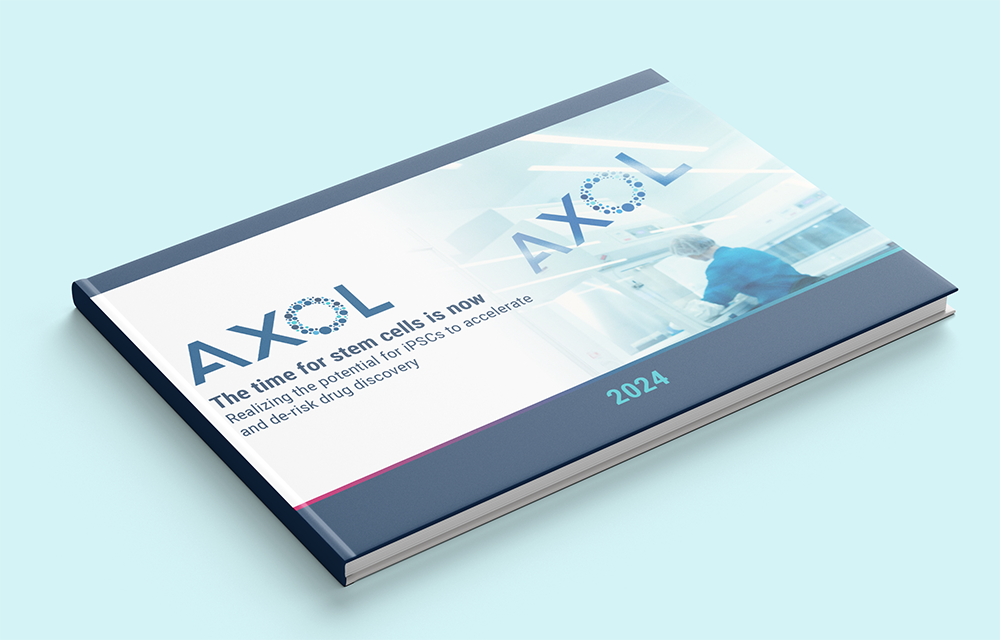The urgent need for better human disease models in drug discovery is increasingly recognized, with human iPSCs playing a crucial role in developing physiologically relevant in vitro models for safer, more effective therapies.
Advanced iPSC models provide significant advantages, including better human relevance over traditional in vivo and simple in vitro models, scalability from individual patients to large populations, and a broader demographic representation throughout the drug discovery process.
They also support patient stratification, improve clinical trial selection, and help reduce costly late-stage drug failures, ultimately de-risking the drug discovery process.

In this eBook, Axol Bioscience provides an overview of its work with iPSC-derived cells and how this technology can support the development of better, safer therapies for patients worldwide.
Download the eBook
eBook contents
- Understand the key drivers behind the need for better, human-relevant disease models in drug discovery.
- Learn the foundations of building effective human-relevant models across different therapy areas.
- Discover Axol’s collaborations with biopharma organizations and their work developing advanced in vitro models powered by high-quality iPSCs.
- Explore how Axol Bioscience leverages its iPSC expertise by incorporating different techniques, such as reprogramming, differentiation, gene editing, compound screening, and custom essays.
Download the eBook